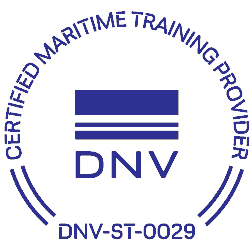
In the first quarter of 2020 the Corona pandemic hit our shores, social distancing became the norm and travel restrictions were introduced. Not only did it come as a shock to our customers and ourselves, we were virtually overnight propelled into a re-think of the presentation of our courses. Training could not just stop overnight. People had very real training needs. Certificates of competency needed to be renewed, etc.
As always, we were able to meet all these challenges head-on and with a minimum of financial outlay, we were able to start running our first courses online in August of 2020.
At first, we started with the highly technical MAN ME- electronic engine courses, because if we could make a success of that, we could make a success of all our courses.
It proved to be highly successful and the extremely satisfied students reported back that it was almost exactly like being in a normal, present classroom. Our customers loved the concept and could immediately see the advantages of online training i.e. No flight costs or bookings, no hotel costs, no visa costs and problems, no taxi costs, no daily student allowances…and many more.
Second up, followed the Train-The-Trainer courses and we are currently working on the rest. We are shattering old norms, conservative thinking and breaking new grounds in online training concepts as far as simulation is concerned.
Unfortunately, older norms, outdated bureaucratic systems and conservative thinking are also some of the biggest hurdles that we will have to overcome as far as maritime authorities are concerned.
Generally, people do not like change. They resist it with a passion, but those in charge will have to make paradigm shifts in their minds in order to embrace the future of maritime training in general and simulation in particular. There is no doubt that the future of maritime training will be online in a virtual world.
As old systems are dying and we are crossing over into the “New Normal” of online training, home office, home schooling, etc, the Kübler-Ross model shows that people go through various stages of initial “shock”, “denial”, “frustration”, even “depression”, before they start seeing the light.
However, once they start noticing the benefits, they start “experimenting” and when they see how well it works, they start “buying into” the concept before finally accepting the new normal.
We are by far not perfect yet, but this is our current stage and with the right attitude we can meet these challenges, solve the problems, iron out the difficulties and achieve the outcome of “Quality Online Simulation Training”, not only for Europe, but the world.
Wayne Möller is Marine Engineer, Senior Lecturer and simulator instructor at Marine Training Center Hamburg GmbH
Monday – Thursday
07:00 – 16:00 hrs*
Friday
07:00 – 15:00 hrs*
*Central European Time
Marine Training Center Hamburg GmbH
Schnackenburgallee 149
22525 Hamburg, Germany

Due to technical problems, the MTC cannot currently be reached by phone or email.
We are working on solving this problem as soon as possible.
We ask for your understanding.
Your team of MTC